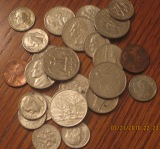
When I was in my early 20s I worked the 24-hour customer service line for a prominent California bank. I got a lot of calls from customers upset because they were overdrawn. A lot of them were overdrawn because of simple oversights and I had so many dollars per customer to satisfy in those situations. All too often, though, customers were failing to reconcile their accounts and it must be the bank’s fault that there was an overdraft and the bank was trying to steal their money through the well-disclosed fees.
I’ve watched the fees for overdrafts and returned checks go up quite a bit over the years. The fee is supposed to be punitive. It’s high so people will try to avoid it. We’re not supposed to overdraw our accounts. We’re not supposed to spend money we don’t have. And yet as high as these fees are and as many times as they can be charged in a day, people continue to overdraft and have transactions returned.
I have gone through bad spells where one math error, missed receipt, or bad deposited check caused everything to spiral out of control. I’ve had backup lines of credit and attached credit cards all in an effort to provide a safety net and avoid the fees. I really do try to stay on top of things because I want to dictate what I do with my money.
New rules are coming into play that allow banks to deny more transactions with a fee instead of paying them and charging a fee. The banks see a pattern among customers that use overdrafts as a high-fee line of credit. So they’re urging their customers to link savings accounts, credit cards, or lines of credit to their checking accounts to pick up the slack for mistakes genuine or intentional.

